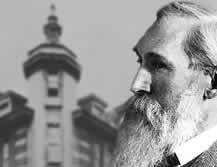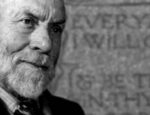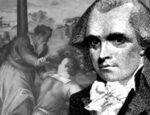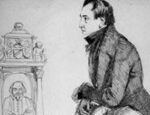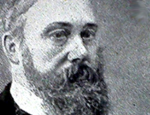Description
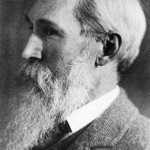 Meet Joseph Malaby Dent, son of a Darlington painter and decorator, who wanted to run away with a travelling theatre, but after joining a Mutual Improvement Society caught the literature bug and went on to become the unstoppable force behind the massively influential Everyman’s Classical Library. Raised in a working-class family with eleven siblings and educated by Wesleyan Methodists, Dent was apprenticed to a printer, which led to the discovery that he had a talent for bookbinding. Against the will of his parents, the young Dent used to sneak out to the old Barn theatre in Darlington, where his three-penny piece would buy him a gallery seat and transportation from the daily grind:
Meet Joseph Malaby Dent, son of a Darlington painter and decorator, who wanted to run away with a travelling theatre, but after joining a Mutual Improvement Society caught the literature bug and went on to become the unstoppable force behind the massively influential Everyman’s Classical Library. Raised in a working-class family with eleven siblings and educated by Wesleyan Methodists, Dent was apprenticed to a printer, which led to the discovery that he had a talent for bookbinding. Against the will of his parents, the young Dent used to sneak out to the old Barn theatre in Darlington, where his three-penny piece would buy him a gallery seat and transportation from the daily grind:
“I still remember the first night I found myself there, fascinated by a play which I think must have been Sheridan Knowles’s Virginius, for it had a Roman setting, and took me far away from things mundane into a world of imagination which has haunted me ever since.”
Knowles, who also wrote the play Caius Gracchus (1815), was an important figure for 19th-century ‘Roman’ drama. His Virginius, which Dent saw, was written initially for performance by the radical actor Edmund Kean in 1820.
Inspired by preparing an essay on Boswell’s Life of Johnson at the local Mutual Improvement Society, Dent came to understand the importance of literature, and often expressed his escapism through reading in classical terms:
“Books, however, have been the great solace and help of my life, and it has been my supreme happiness to have been associated with literature all my days, even though only as a door-keeper of the Temple.”
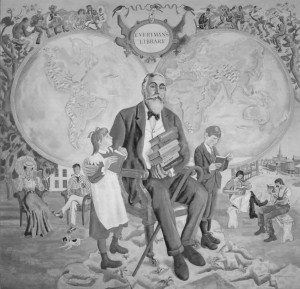 The picture above, painted by Alfred Reginald Thomson in 1974, is part of the collection at Darlington Library. [full colour here]. It shows an avuncular Dent sat in a chair holding a stack of Everyman books in his lap. Behind him is a map of the world – showing the extent of the publisher’s global achievement. Above his head in the topmost corners are depicted readers of various nationalities. To his left and right – either side of the studious children – are a pair of outdoor reading scenes; on his right sits an aristocratic couple reading in the garden of their rural mansion; mirroring them, on his left sit two male workers. All four figures hold the very same editions of the Everyman library. Dent’s pioneering series, providing high quality and well-produced literature at affordable prices, had inter-class appeal.
The picture above, painted by Alfred Reginald Thomson in 1974, is part of the collection at Darlington Library. [full colour here]. It shows an avuncular Dent sat in a chair holding a stack of Everyman books in his lap. Behind him is a map of the world – showing the extent of the publisher’s global achievement. Above his head in the topmost corners are depicted readers of various nationalities. To his left and right – either side of the studious children – are a pair of outdoor reading scenes; on his right sits an aristocratic couple reading in the garden of their rural mansion; mirroring them, on his left sit two male workers. All four figures hold the very same editions of the Everyman library. Dent’s pioneering series, providing high quality and well-produced literature at affordable prices, had inter-class appeal.
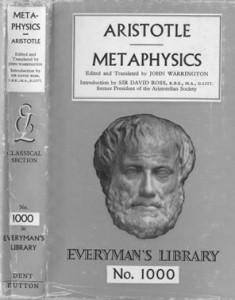 After becoming a publisher Dent made his way through the great literature of the world in translation, including – of course – the Greek and Roman classics. He believed that the world could be changed for the better by people reading the best literature. It was his aim therefore to mass-produce the full range of the greatest literature of the world in English translation and an affordable format. In 1906 he expressed the desire that the Everyman series, edited by the remarkably industrious Ernest Rhys, would reach 1000 volumes. Fifty years after the first Everyman book (fittingly Boswell’s Johnson) was sold, Everyman fulfilled Dent’s original goal by printing their thousandth title, Aristotle’s Metaphysics. Everyman was so important for the dissemination of classical culture because it was through that ambitious series of books that the majority of the British reading public encountered the best of world literature, including, in pride of place, the greatest poetry and prose composed by the ancient writers of Greece and Rome.
After becoming a publisher Dent made his way through the great literature of the world in translation, including – of course – the Greek and Roman classics. He believed that the world could be changed for the better by people reading the best literature. It was his aim therefore to mass-produce the full range of the greatest literature of the world in English translation and an affordable format. In 1906 he expressed the desire that the Everyman series, edited by the remarkably industrious Ernest Rhys, would reach 1000 volumes. Fifty years after the first Everyman book (fittingly Boswell’s Johnson) was sold, Everyman fulfilled Dent’s original goal by printing their thousandth title, Aristotle’s Metaphysics. Everyman was so important for the dissemination of classical culture because it was through that ambitious series of books that the majority of the British reading public encountered the best of world literature, including, in pride of place, the greatest poetry and prose composed by the ancient writers of Greece and Rome.
n.b. around 1860-70 (for the performance of Knowles’ Virginius)

